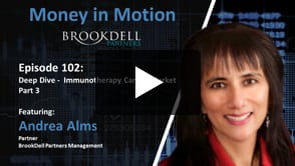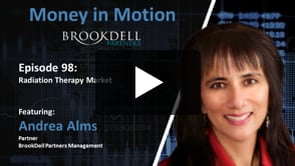Private Equity Dashboard:
Top Private Equity News, Member Posts, Managed Futures Daily Indices and more!
William Wilson Contributor William Wilson is a partner in Goodwin’s technology group and intellectual property practice. His practice focuses on technology transactions, including counseling, structuring and negotiating deals across industries with a particular focus on the fintech, healthcare and technology sectors.
Last year saw investors throwing record amounts of dollars into startups, but recent geopolitical events, an anticipated increase in interest rates and other factors are leading to a slowdown in venture capital financing.
Since the pandemic began, intellectual property assets have seen an increase in value and are increasingly becoming a focus for investors looking to spend their stockpile of dry powder. For startups, ensuring their intellectual property and commercial contracts are in order can be helpful in achieving smooth financing.
Waiting to tackle these issues during a financing could cause delays, result in time-consuming and expensive remediation, and, in the worst case, lead to lower valuations.
Below is a list of 10 intellectual property and commercial areas that investors look at during due diligence, and steps that startups can take to better prepare for these issues.
Ensure former employers cannot claim IP ownership
Investors are particularly concerned about startups having exclusive ownership of their intellectual property. This exclusive ownership often faces risks when a founder moonlights on their new startup while still employed by another company, especially if the former employer offers a competing product or service.
The best IP strategy is to file for federal protection as soon as possible.
A founder should ideally begin working on their startup after ending all previous employment. They should ensure and document, if possible, that they don’t start any work on their new product or company on their former employer’s time, using its tools, customer lists or confidential information.
Founders should also carefully review any non-complete and non-solicitation provisions when starting a new company and hiring any former co-workers or vendors.
If a founder is developing a product or service that will compete with their former employer, they should carefully document the development process, and even use a clean-room software development methodology to ensure that the product or service was created independently of their former employer.
Document IP created by employees and contractors
The fact that a person is employed by a company is typically insufficient for it to secure any IP developed by the employee.
One of the easiest ways for companies to protect their IP is to have all employees, advisers, contractors, interns and other entities enter into written confidentiality and invention assignment agreements. Although these agreements are typically short and simple contracts that are not heavily negotiated, companies often fail to obtain them, which can result in them not owning key aspects of their IP.
Today's Private Equity Headlines:
Access Over 250K+ Industry Headlines, Posts and Updates
Join AlphaMaven
The Premier Alternative Investment
Research and Due Diligence Platform for Investors
Free Membership for Qualified Investors and Industry Participants
- Easily Customize Content to Match Your Investment Preferences
- Breaking News 24/7/365
- Daily Newsletter & Indices
- Alternative Investment Listings & LeaderBoards
- Industry Research, Due Diligence, Videos, Webinars, Events, Press Releases, Market Commentary, Newsletters, Fact Sheets, Presentations, Investment Mandates, Video PitchBooks & More!
- Company Directory
- Contact Directory
- Member Posts & Publications
- Alpha University Video Series to Expand Investor Knowledge
- AUM Accelerator Program (designed for investment managers)
- Over 450K+ Industry Headlines, Posts and Updates



























